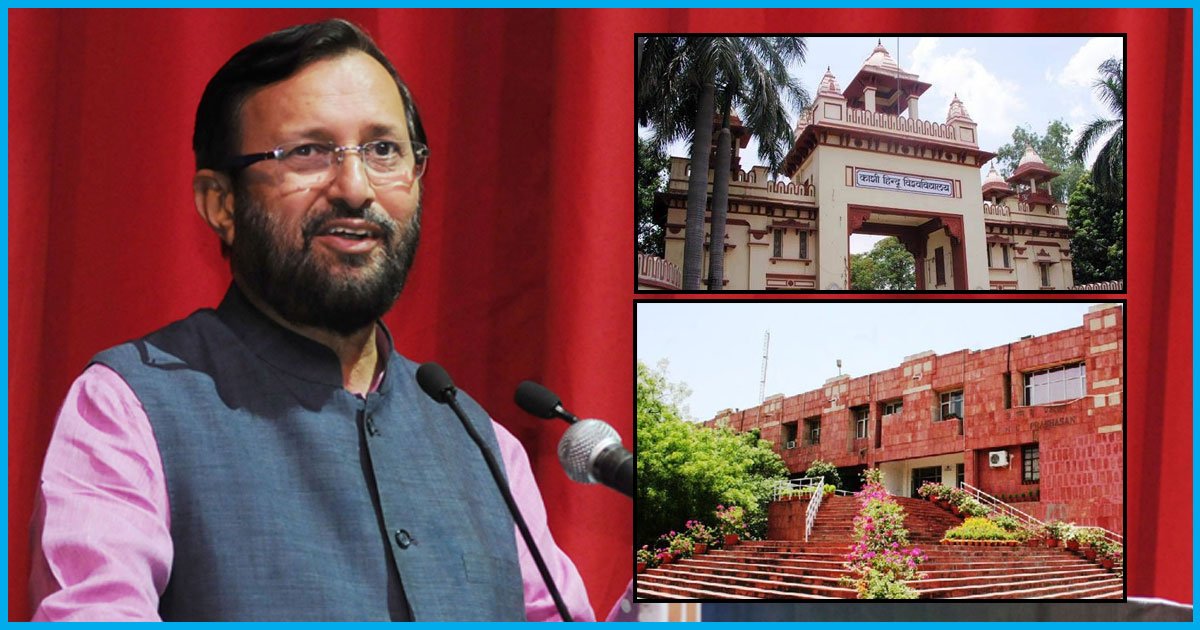
UGC Grants Autonomy To 52 Universities Including JNU, BHU
22 March 2018 6:07 AM GMT
Minister of Human Resources and Development Prakash Javadekar announced on 20 March the decision of UGC to grant autonomy to 60 higher educational institutes, 52 universities i.e., 5 central universities, 21 state universities, 24 deemed universities, and 2 private universities. The autonomy shall also be given to 8 colleges as mentioned in the list released by the Ministry of HRD on Tuesday.
Jawaharlal Nehru University (JNU) and Banaras Hindu University (BHU) are among the top 5 universities to be granted the autonomy. Some other universities to get the status are the University of Hyderabad, the English Foreign Languages University (Telangana) and Aligarh Muslim University.
How are the universities categorised?
The universities which are going to get autonomy are the ones that have maintained high educational standards regarding the NAAC score or any other reputed world rankings.
Under the UGC grant for graded autonomy regulations, 2018, universities are divided into three categories: a score of 3.51 or above will place a university in the first category, 3.26-3.50 in the second category and others with a score lower than the above mentioned in the third category.
What the govt aims to achieve
According to the HRD Minister, “this decision has been taken in line with the vision of PM Narendra Modi towards liberalised regulatory regime”. Even though the universities with autonomy will remain under the UGC ambit, they will not require any permission to start new courses, programmes and departments, according to Scroll. They can pay their teachers more than what the Seventh Pay Commission recommends to attract the best talent and can even start off-campus centres, research parks, admit international students and appoint faculty members from other countries.
Javadekar further added that such universities could also academically collaborate with the world’s leading universities.
The eight colleges that will receive the UGC grant can also design their syllabi, conduct their exams and declare their results. However, university certification of the degree given will be required.
Backlash
This decision is facing criticism by organisations like the Academics for Action and Development which represents the teachers of Delhi University who feel that this is an attempt to privatise public funded institutes.
“In the garb of this autonomy and freedom to open new departments and courses in self-financing mode, the present courses run by the universities are going to be decimated,” the organisation said. “The freedom is, in fact, a trap for self-destruction.”
They are furious over the fact that no prior discussions were held with the teachers, stakeholders as well as the non-teaching staff. This decision of the government will not only encourage privatisation but also deprive the Scheduled Castes, Scheduled Tribes and OBC communities of the benefits of government-aided universities.
The Delhi University Teachers Association (DUTA) has also gone on a full 5-day strike as a mark of protest against the government’s decision.
 All section
All section













